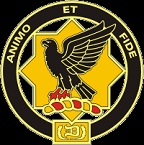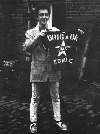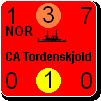Charles2222
Posts: 3993
Joined: 3/12/2001
Status: offline

|
quote:
ORIGINAL: 06 Maestro
quote:
ORIGINAL: Charles_22
Another thing I wonder about, just how quickly after the speech did the turnabout start? Was it just a lot of hot air for several months, or did they really get serious right then?
As best as I can recall (from A. Speers book) is that Todt initiated the 72 hour work week for German armaments factories in January of '43. German production did start to climb immediately from that point. The Luftwaffe plants had there own supervision. Although their output began to rise rapidly also, they did not go onto the 72 hour week until April of '43. The differences in production were amazing. If we did not start smashing factories that summer, things were going to get real ugly.
Regarding German Intel on our bomber forces; from what I understand, Goering was well informed of U.S. bomber production and production forecasts as of mid '42. Some simply did not believe it was possible, other Luftwaffe Generals wanted to stop bomber production so that everything could be concentrated on fighters. IIRC, the extreme response to the plausible threat from the U.S. was not taken in that the war in the east was suppose to be largely over so the Luftwaffe could return to the west in numbers.
On a related thought; the U.S. high command was not worried about the Germans capturing the Caucasian oil centers. Apparently the Brits were. It had bee reasoned out that even with a huge increase in fuel supplies for the Luftwaffe, they were a spent force. The reduction of quality trainers for the Luftwaffe was an ever ongoing event with one "emergency" after another. Even with higher production and an increase in fuel, the problems would become insurmountable. The time that was required to train new units and aircrew was just no longer available to the Luftwaffe before the hammer would fall. That was the US view in late '42 anyway.
The critical years for the Luftwaffe expansion was '40-'41. This is another reason why the higher production in the early years of the war were critical. They needed training a/c by the thousands. Losses of first line a/c due to training accidents were very high-something like 1 plane for 5 pilots. These were problems the RAF anticipated-and somewhat avoided. Although the RAF actually lost more a/c from accident than from combat for a long time-they kept churning out the aviators and planes until they were on top of the situation.
This conversation reminds me of a great book I have on the air war. Its not about the battles per se, but the overall organization of the various air forces, training, research control and industrial policies-complete with numbers. I will find that sometime in the next day and post its title/author. It was fascinating stuff.
Pretty interesting, but as far as ready pilots and number of capable planes, do recall the match here. We're talking about guys, who as late as the Poltava Incident, were parking their planes willy nilly, often in plain view, off the runways, and often didn't bother to flatten out the ground very much (so their takeoffs weren't very smooth). This of course would describe the USSR aircrews. If generalizations can be trusted, while the Luftwaffe may have had more complicated, or even more delicate planes, "may", the Red Air Force treated their machines like garbage, so I wouldn't exactly expect their service ratio to be too terribly high in comparison. There was a period of complete domination by the Luftwaffe against the RAF (Red Air Force), and then at some point, in operational machines anyway, there was parity, but even then the Luftwaffe had a considerable edge. Then came the period of the drain, where more and more was being sent to battle the strategic offensives, and as a result the USSR RAF got something approaching dominance. It wasn't that the Luftwaffe did so poorly with what they had as to why they would lose the edge somewhere, but because they were often having to split their forces, even more so than the armies usually, to fight nations that were putting almost all of their aerial power against them.
Artificial germany, again, never would have had the slightest problem with the USSR RAF, especially after that romp of a start, but unlike the USSR for the most part, they had other battles to fight, so there were as in all cases with the germans, periods of superiority, periods of parity, and then periods of inferiority.
|
 Printable Version
Printable Version

















 New Messages
New Messages No New Messages
No New Messages Hot Topic w/ New Messages
Hot Topic w/ New Messages Hot Topic w/o New Messages
Hot Topic w/o New Messages Locked w/ New Messages
Locked w/ New Messages Locked w/o New Messages
Locked w/o New Messages Post New Thread
Post New Thread